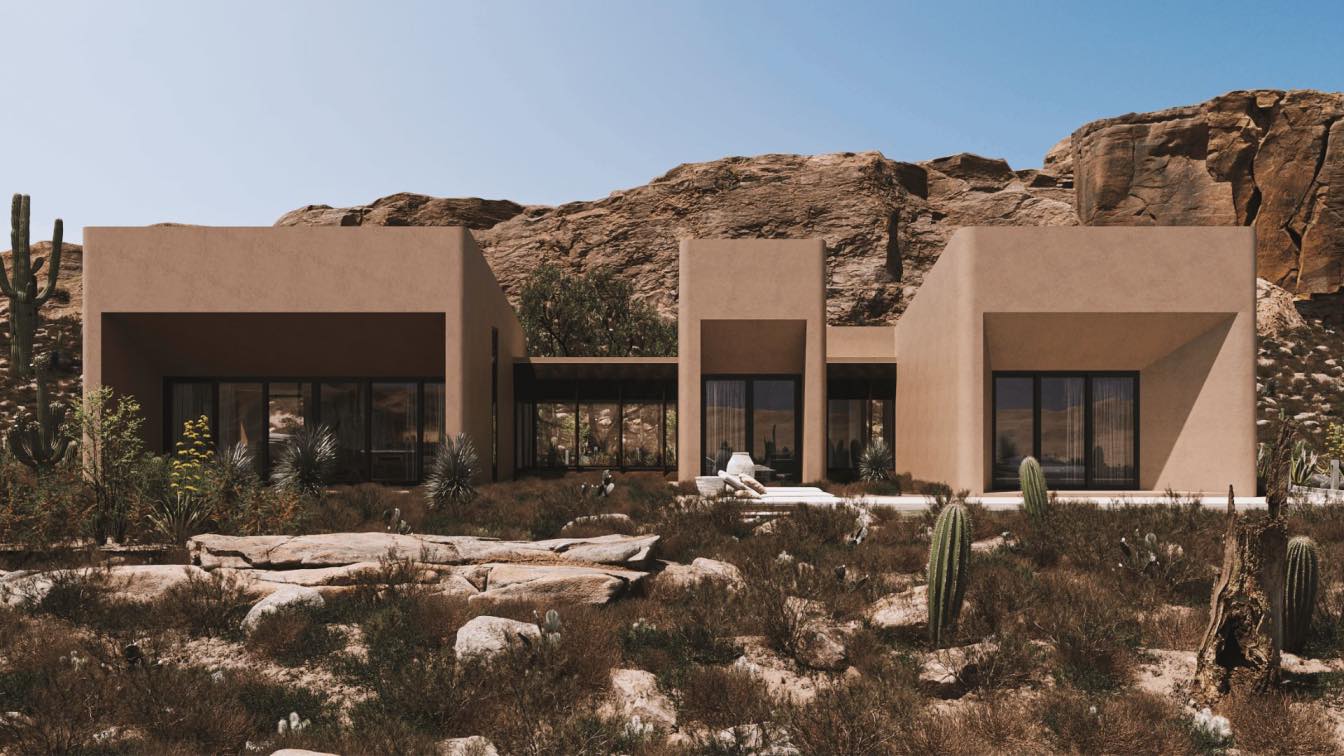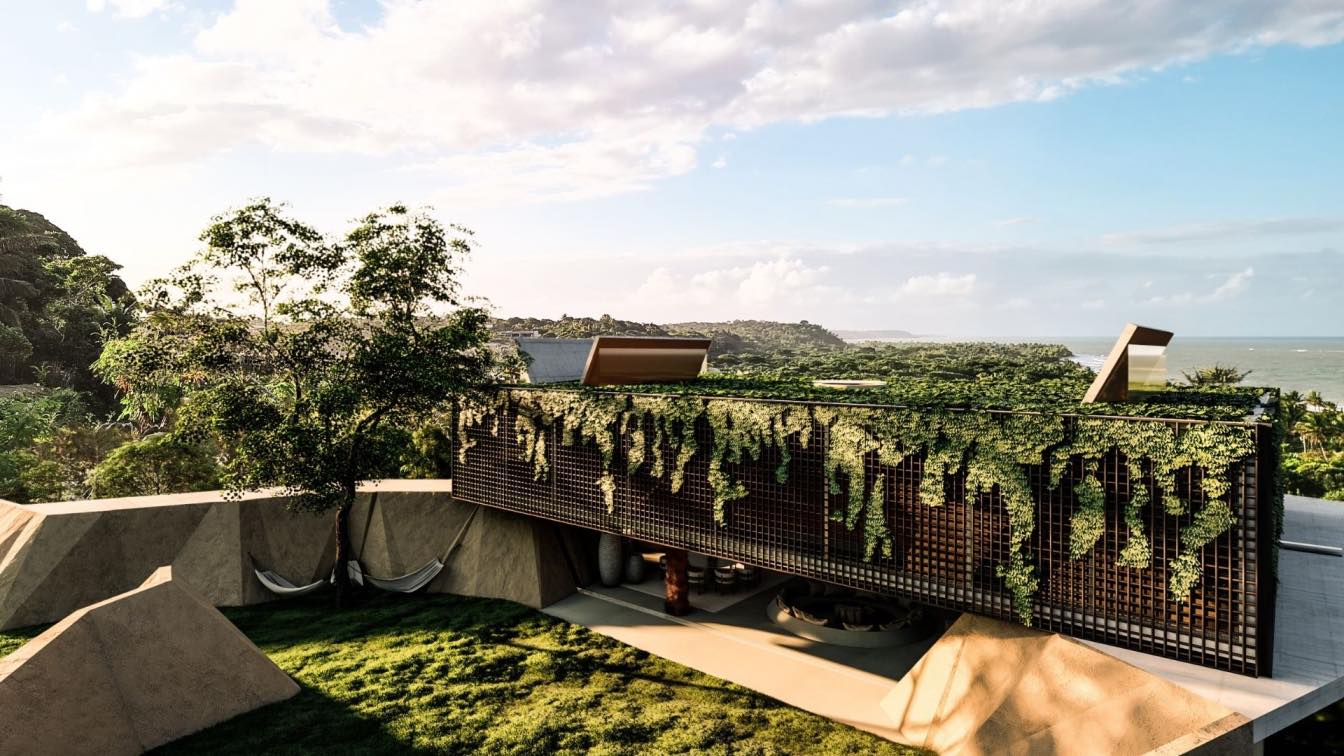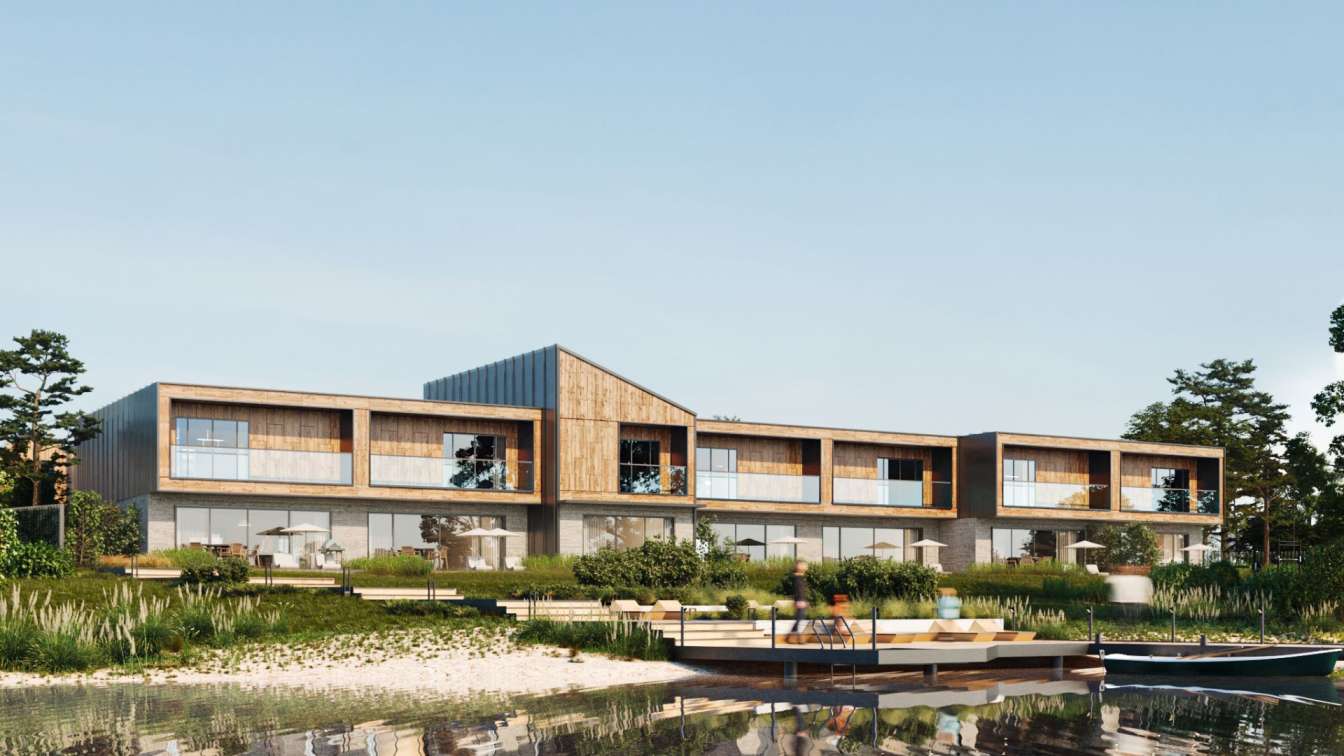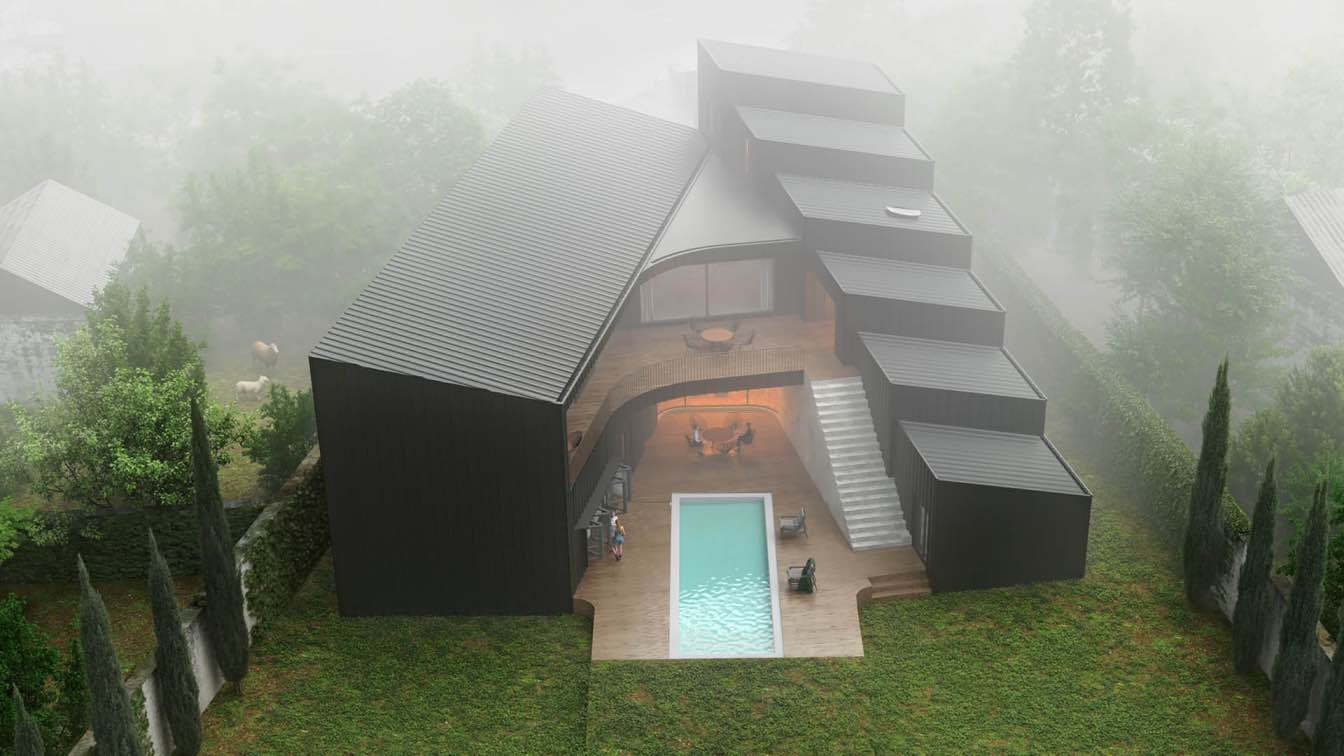Tina Tajaddod: Çol House, inspired by the design in Puembo, Ecuador. The reason we put this name on the Project is being between desert and Çol in Turkish means desert.
In Our Version, The house is designed and located in the desert and is an alternative answer to living, using solar energy. It is also a response to shared housing; It seeks to understand it from the perspective of a set of spaces in which a family lives, rather than from the perspective of an architectural element. It is a symbolic volumetric composition designed in a suburban context and away from the urban environment, which shows each space of the house as a part with its own characteristics that relates to the environment and the whole.
An area of 375 square meters, designed almost entirely on one floor, proposes to divide the program into six volumes, giving absolute autonomy to the specific activities that each room involves. Different heterogeneous volumes are intertwined with the landscape and create expansions and transparencies that turn the texture into a part of the interior spaces. The articulated spaces that connect the main areas are a transition that makes the user feel like they are walking freely in the desert, when in fact they are moving in the interior. The location of each room in relation to sunlight responds to the activity for which they are designed. Private and service spaces are aligned with the morning sun to enjoy the first hours of light at the start of the day, while social and family rooms enjoy the afternoon sun as everyone heads home from the day's activities, have returned. Each room accommodates a specific activity that responds to different requirements, such as level of privacy, room capacity, sunlight, ventilation, and interaction with the exterior and adjacent spaces. These results in the internal spaces being modified in height, width, and length as well as in the type of internal coverings, to achieve the personality that corresponds to each one.

Additionally, each volume holds an opening. In the case of social areas, they are visually interconnected through these openings, while private spaces have visual access to the outside. The materiality of the project is very simple. Smooth continuous planes, painted bej, with softened lines at the vertices, reinforce the idea of an artificial object that is foreign to the original context of the site where it is implanted. The translucent bridges that connect the spaces, decorated with rusted steel sheets on the horizontal planes, play with a more organic palette and reinforce the overall horizontality. The project proposes a single-family home in a very abstract way, in which the functionality of the spaces, their internal relationships, and the suburban context are extrapolated to generate a simple and straightforward architectural object, both in composition and materiality. Its organization allows for daily life events, whether simultaneous or independent, to take place without altering the general order, an act that is so necessary for today's families, where the individual and the common are of equal importance.
The spaces of the house include: Main Entrance, Parking, Bathroom, Kitchen, Laundry, Outdoor Living Room, Roof Stairs, Living-Dining Room, Family Room, Bedroom, Master Bedroom, Guest Room, Pool & Circulation.













.jpg)
